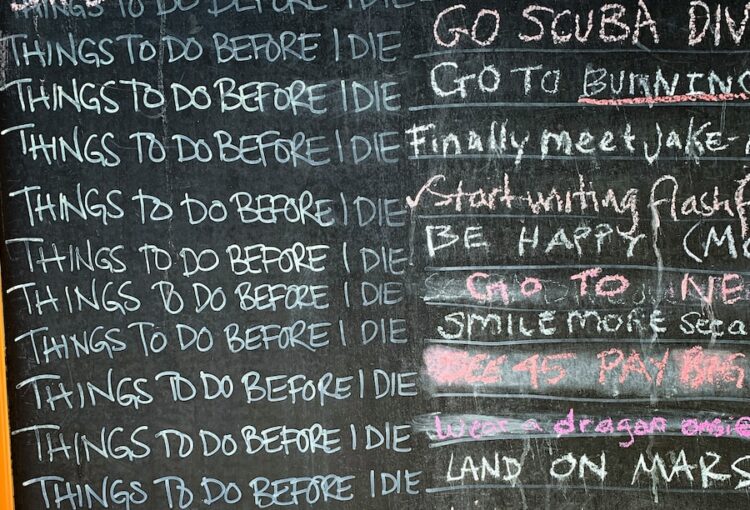Bucket Lists

Bucket lists provide an engaging conversation topic for ESL learners, stimulating imagination and personal reflection. They promote the use of diverse vocabulary and complex sentence structures, helping learners discuss future plans, dreams and goals. The open-ended nature of the topic encourages students to articulate thoughts in English, fostering fluency and confidence.
What is a Bucket List?
A bucket list is a list of things someone wants to do before they die. The name comes from an old saying for dying, “kick the bucket”. This list can include many different things, for example, someone might want to visit special places, learn new things, do exciting activities or reach important goals.
A bucket list helps people remember what they want to do in life. It can also push them to try new experiences and live fully, and it’s a way to make sure they do all the things they dream about.
Useful Vocabulary
Try and use the following vocabulary when answering the question. Click to look up the definition in the dictionary
Conversation Questions About Bucket Lists
- Do you have a bucket list?
- Do you think it's important to have a bucket list? Why or why not?
- Should bucket lists be private or shared with others?
- Should bucket lists focus more on realistic goals or dream-like aspirations?
- What are the top three things on your bucket list?
- If you could add anything to your bucket list, with no limitations, what would it be?
- If time and money weren't factors, what would be the first thing on your bucket list?
- Does having a bucket list help us appreciate life more, or does it make us focus too much on the future?
- Is creating a bucket list more beneficial for younger or older people?
- Do you think you will achieve everything on your bucket list?
- What professional achievement would you like to add to your bucket list?
- Is there a subject or skill you'd like to master and put on your bucket list?
- What destination is at the top of your travel bucket list?
- Is there a specific cultural experience or festival in the world that you would add to your bucket list?
- If you could overcome a fear as a bucket list item, what would it be?
- Is there an extreme sport or adventure you want to try for your bucket list?
- Is there a specific fitness challenge or event you would put on your bucket list?
- If you could make a difference in any area of the world as a bucket list item, where and what would it be?

